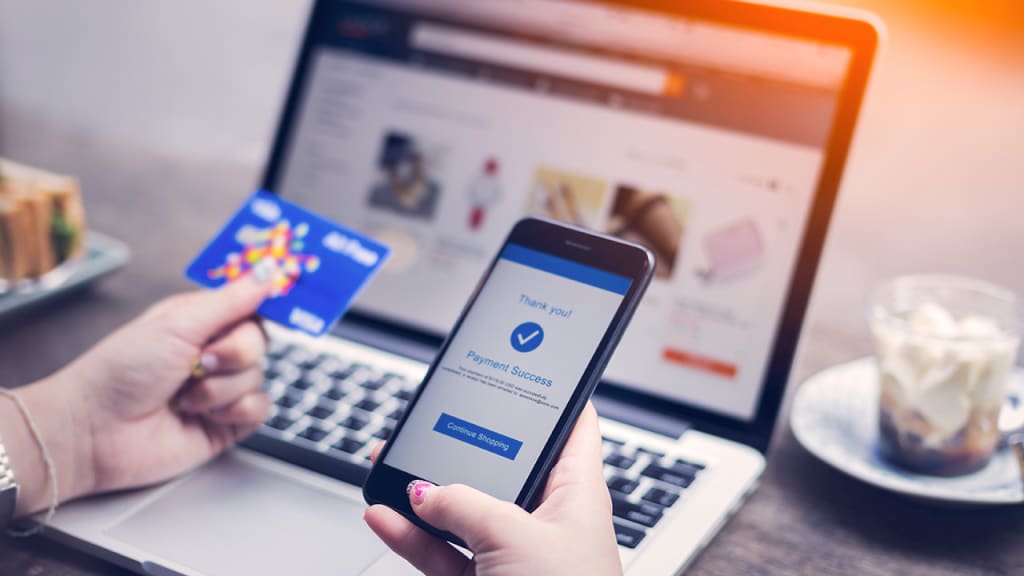Everything You Need to Know About Safe and Secure Online Shopping
Online Shopping

When you are shopping online, it is important to understand everything you need to know about safe and secure payments. The best way to make your payments is to use your credit card. Make sure to check your bank and credit card statements for fraudulent charges. Also, avoid using public Wi-Fi when possible. For the safety of your information and your money, be sure to use a virtual private network (VPN) for your internet connection.
Credit Cards are the Safest Way to Pay for Items Online
When it comes to making purchases online, credit cards are one of the safest ways to go. They are backed by banks and credit card companies and come with a lot of benefits. For instance, you can keep track of your spending and avoid overdraft fees.
The best part about using a credit card is that it is accepted almost everywhere. That said, you can't always count on it. Some businesses may use non-compliant e-commerce platforms, and your data may be compromised in the process. If you don't want to risk it, you might as well use cash or your debit card.
If you want to get the most out of your shopping experience, you should look for DoBargain Coupons and discount codes. These coupons will allow you to get up to 70% off your purchases.
These coupons can be found online and sometimes in stores. You can also subscribe to the DoBargain email newsletter. This offers regular updates on new products and sales events. It is free to join and will give you access to exclusive member-only offers.
Another safe way to make a purchase online is with a prepaid debit card. These can be purchased at local grocery stores or pharmacies. In addition to keeping your digits safe, prepaid debit cards offer anonymity when you shop online. You can also get a gift card with this type of payment method if you're on the lookout for a holiday present for a friend.
While you're at it, you should consider other options such as a mobile payments app or crypto-currency. Mobile payments allow you to make purchases without touching your cash, but you should still be careful about whom you give your personal information It can be difficult to tell whether you're providing the card's true identity to a company. This is especially true when you don't see the item in person.
The most important thing to remember about using a credit card is to pay attention to the fine print. Many online retailers are shady in their business practices, and you don't want to end up with a fraudulent charge on your card. Also, you need to monitor your account for suspicious activity. By keeping an eye on your bank account, you'll be able to catch fraud before it gets out of hand.
The old saying goes, "The best thing about credit cards is that they can't be hacked." However, if yours is ever compromised, you're not out of luck.
Avoid Public Wi-Fi
If you use public Wi-Fi while shopping, you are putting your personal information at risk. There are a few ways you can keep your data safe.
First, you should sign up for a service that requires two-factor authentication. You can also install a good antivirus program on your device. These programs will protect you against malware and other attacks. They will also show you when there is suspicious activity on your network.
Second, you should limit the number of networks you connect to. The more networks you connect to, the more likely you are to find an unsecured one.
Third, you should avoid doing any online transactions that involve sensitive information. This includes banking and credit card information.
Fourth, you should avoid using apps on your device that collect PII, or personally identifiable information. Hackers can intercept messages sent over a WiFi network and steal your data. Additionally, they can use the information to make fraudulent purchases or loans.
Finally, you should be aware of what happens to your information once you log out of service. Hackers can take your information and change it, or they can send malicious software to your device.
Using a virtual private network (VPN) is a great way to minimize the risks associated with public Wi-Fi. Some VPNs are free, while others require payment. Buying a VPN from a trusted provider will protect your data.
Lastly, you should avoid giving out your PII when signing up for a public Wi-Fi service. For example, some companies require you to enter your email and phone numbers before signing up. Make sure you use a different email address for these services.
Public Wi-Fi is a convenient way to shop and communicate, but it isn't necessarily a safe way to do so. Using a VPN or antivirus will protect you from harmful hackers and malware. Using a smartphone as a hotspot is a safer option. And if you have an unlimited data plan, you are better off connecting to a Wi-Fi network than logging on to a rogue public Wi-Fi.
Use a VPN
If you're looking for safe and secure ways to shop online, a Virtual Private Network (VPN) can make a huge difference. It can protect your personal information and help you to get lower prices on products.
VPNs can also prevent price discrimination. Many sites offer different prices based on the user's location, and a VPN can make that process go away.
Another benefit of a VPN is that it can hide your IP address. Internet service providers (ISPs) can see your IP address and use it to track your web traffic. However, a VPN uses encryption to make your IP address invisible to the third party.
VPNs also allow users to choose a server located in another country to hide their real location. This ensures that a website won't be able to see where you are and where you're going. Some VPN services even have a kill switch to block any leaks of your location and data when you're disconnected.
A Virtual Private Network can also help you to avoid scams. Most reputable VPNs have a no-logs policy, which means that they don't keep any of your online activity on their servers. The best VPNs will also offer strong encryption protocols.
Even with a VPN, you should still take care to shop only with a trusted retailer. Many retailers such as Amazon and Walmart are known to be safe and reliable, but you should always be cautious about where you shop.
One of the main reasons to protect your privacy is that you are likely to be more susceptible to identity theft if you shop online. If your payment information isn't encrypted, you can easily be a target for criminals.
For added safety, you should check for a secure payment gateway. You should only provide the minimum amount of personal information necessary to make a purchase.
In addition to a secure payment gateway, you should also make sure that your online account uses two-factor authentication. Many financial institutions have adopted this method, and it will add a layer of protection.
Check your Bank and Credit Card Statements for Fraudulent Charges
Keeping your credit and bank statements safe is a way to avoid unauthorized charges. Checking your statements for suspicious activity and contacting your card provider are the first steps to protecting your identity. If you have a digital wallet, such as an app, you may be able to use facial recognition and fingerprints to identify yourself. You also need to be sure your operating system and anti-virus software are up to date.
Identity theft occurs when a thief gets access to sensitive information. They can pose as legitimate companies, government agencies, or other individuals and steal files and credit cards. Some of the best ways to protect yourself from identity theft are to close down accounts, monitor your credit report, and change your PINs.
When you buy items online, it is important to use a credit card. Never provide credit card numbers or other personal information on an unsecured website. Use a secure site that includes the company name and password. This will ensure your card number isn't captured. If you want to save more money on your next purchase, use the Saving Gain Coupon Code.
If you suspect that your identity has been stolen, you should immediately close your accounts and file a police report. Once you are notified, you can request a freeze on your credit. The Federal Trade Commission (FTC) provides sample dispute letters. Alternatively, you can sign up for alerts with your financial institution.
Credit and debit card fraud is covered by the Electronic Fund Transfer Act and the Fair Credit Billing Act. In some cases, a computer glitch can cause unauthorized charges to show up on your credit card statement. However, you can dispute the charge within 60 days.
Certain warning signs indicate your identity has been stolen. These include missing mail, a dropped credit score, or attempts to log in to your account. Despite these hints, you can still be a victim of fraud.
You should be able to find the phone number of your credit card provider on the back of your card. Call it immediately if you receive suspicious emails or calls.
Conclusion
Online shopping is one of the most popular ways to purchase goods and services. However, it also presents several risks. This is why it is important to keep some essential safety tips in mind.
Firstly, always use a secure connection while shopping online. You should ensure that the site you are purchasing from is protected by SSL encryption. An icon in the URL bar indicates this.





Comments
There are no comments for this story
Be the first to respond and start the conversation.